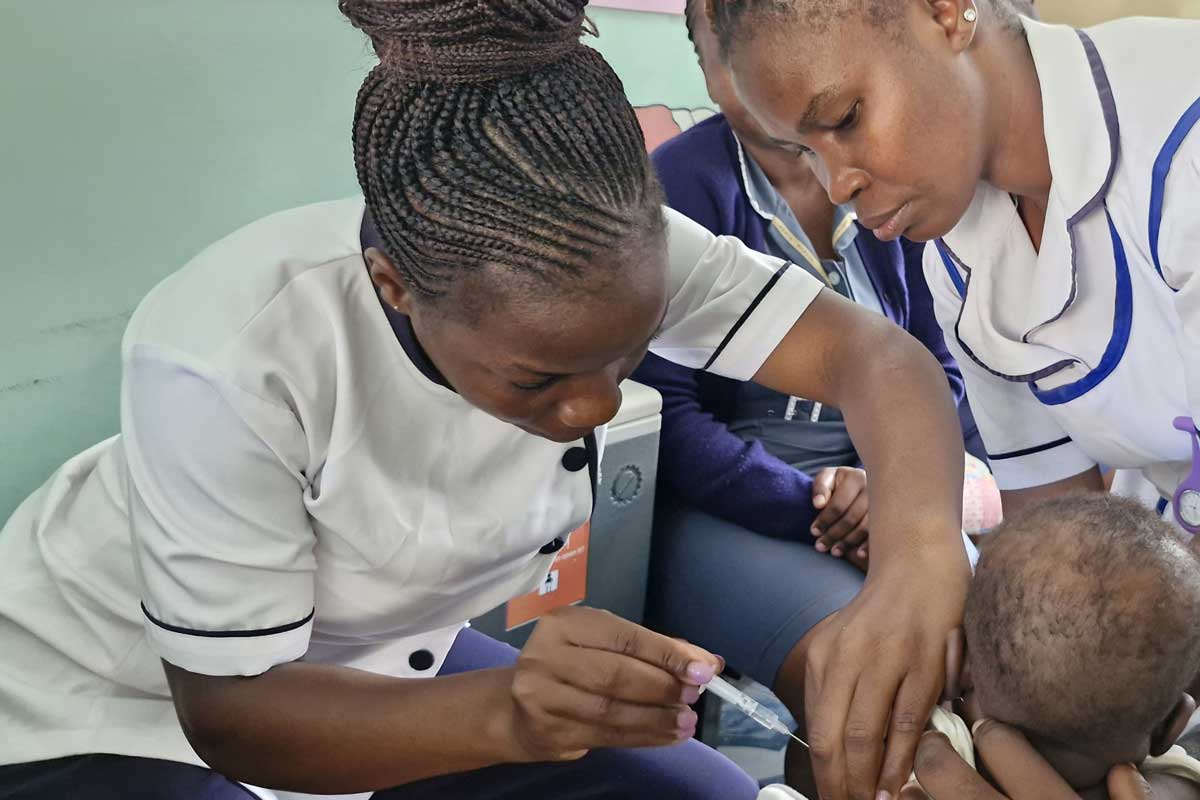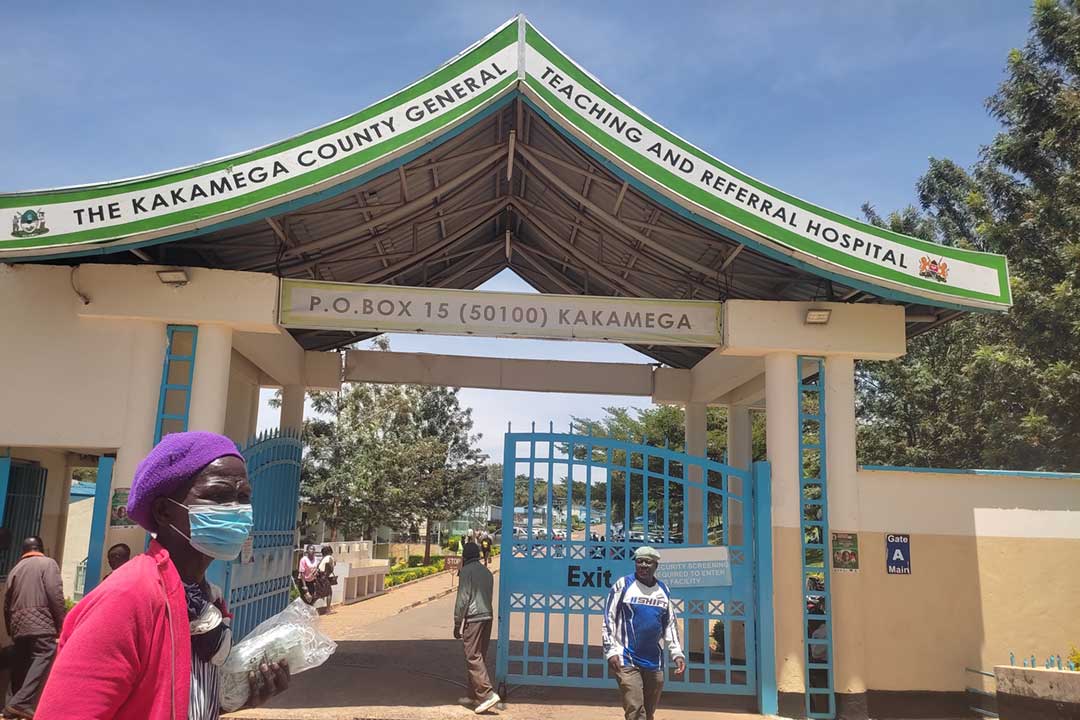After the flood, health care goes pastoral in Kisumu
As displacement due to flooding spurs rates of teen pregnancy, a church programme in western Kenya is shepherding young mothers towards antenatal and immunisation clinics.
- 9 July 2024
- 6 min read
- by Angeline Anyango
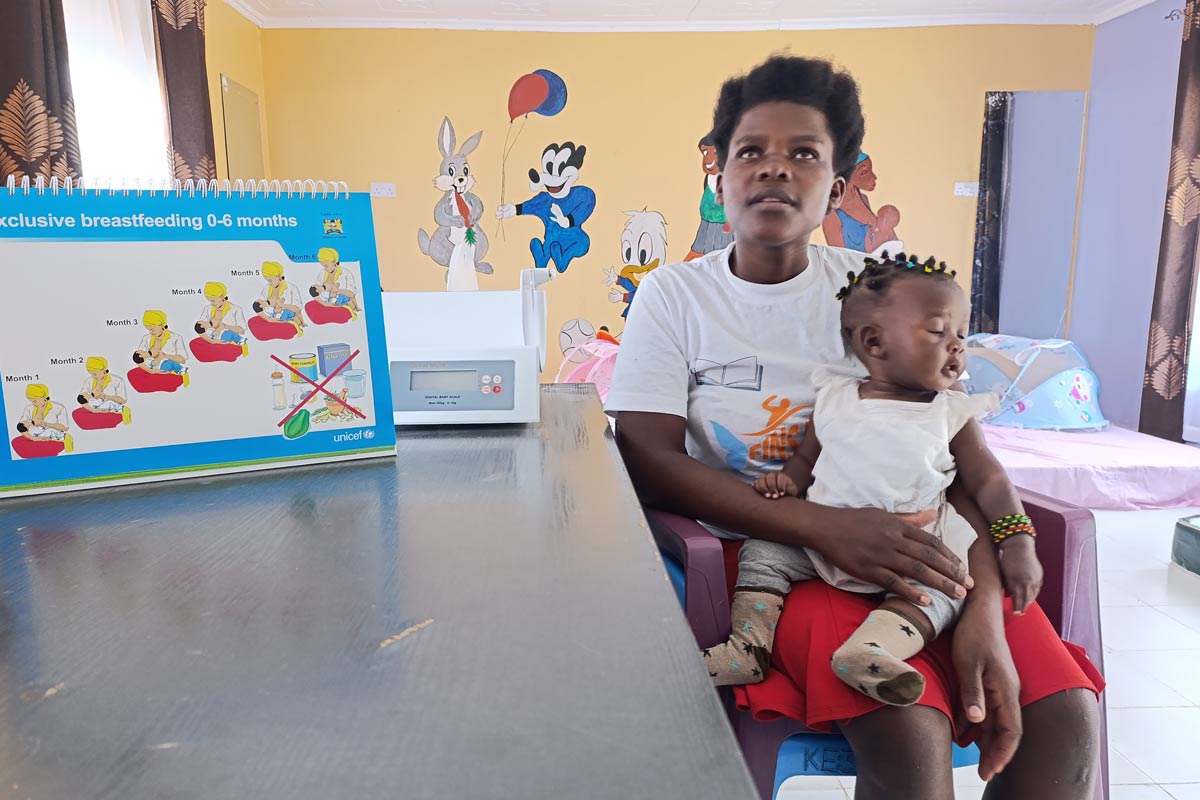
Antonina Anyango, aged 20, sits quietly in a room in the church compound, holding her eight-month-old baby girl in her lap as Evaline Awino, a community health worker, pages through the young mother’s postnatal care booklet.
Anyango seems eager to show that she’s on top of baby Pamela Auma’s clinical schedule, volunteering that her most recent trip to Nyang’ande Health Centre, in Kenya’s Kisumu, was uneventful. “The health experts only checked the baby’s weight and made an inquiry about her general health update,” Anyango says. At the next visit, she notes, baby Pamela is due to receive a first dose of measles vaccine and a third dose of the RTS,S malaria jab.
“Although I did not clear my secondary school education due to poverty, the [church] health worker has played an important role, ensuring I have basic knowledge on raising my baby.”
- Antonina Anyango, aged 20
Awino and Anyango then discuss the infant’s diet, as she is currently being introduced to solid foods. The health worker is impressed by the first-time mother’s adherence to the feeding plan they discussed at their most recent meeting, back in May. Anyango has questions – why is Pamela rejecting certain foods? Awino reassures her, and advises her to be gentle: find alternatives, feed her what she likes, just make sure she’s getting a balanced diet. Finally, after a few parting pointers on hygiene, Awino closes the session.
The community health worker’s lessons, says the young mother, play an important role in her child’s upbringing. “Although I did not clear my secondary school education due to poverty, the [church] health worker has played an important role, ensuring I have basic knowledge on raising my baby,” says Anyango.
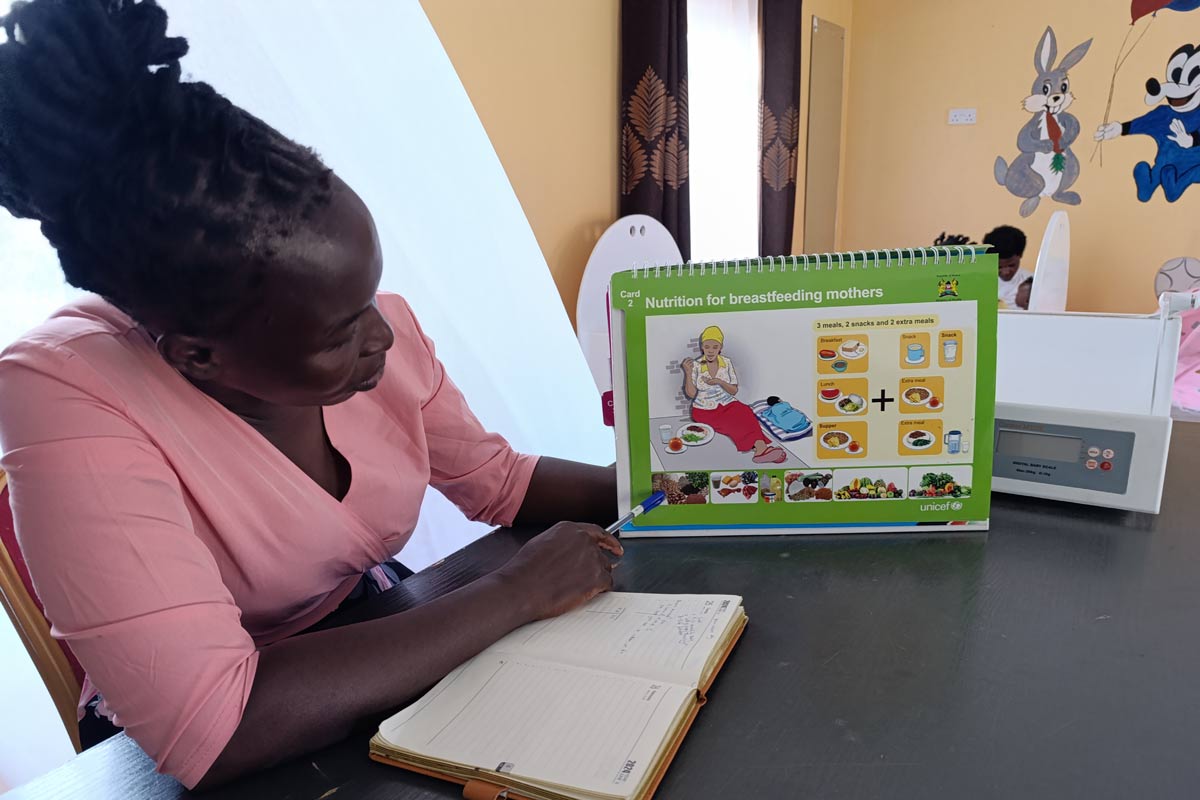
A hand to hold
Anyango is one of a number of young women who have, since its launch in January 2024, enrolled in an Episcopal Church of Africa (ECA) programme aimed at bringing up healthy children in the flood-prone Nyando Sub County of Kisumu.
At least once a year, people in Nyando are displaced from their homes or lose property due to flooding. The Nyando River regularly bursts its banks, sometimes due to backflow from Lake Victoria, Africa’s largest freshwater lake. According to locals, the frequent flooding and resultant displacement have resulted in high poverty levels, teenage pregnancies, early marriage, school drop-outs and child neglect.
Since the programme’s inception, 273 children have benefitted from programme. To do so, the ECA’s Reverend Father David Ouru says, one must be a young mother from a humble background. Beneficiaries are, however, not required to be part of the church’s community of faith.
He adds that the programme has seen an increase in immunisation uptake among the locals, with an improved understanding of the role of vaccines.
Sheila Awuor, a Grade 8 drop-out, is another of the young mothers who have brought their children to the ECA for a monthly wellness check. She tells Evaline Awino that her baby just attended her fifth month clinic check-up. “The health workers at Nyang’ande health facility checked her weight sand said she was up from 5 kilograms to 6.5 kilograms,” says Awuor.
“You will be visiting the facility next month for the next dose of polio, hepatitis B, tetanus, diphtheria and whooping cough vaccine,” notes Awino.
There is discussion of diet, and hygiene, and finally, just before Awuor leaves, there’s advice of a more spiritual nature. Awino takes Awuor through some religious tales and advice on how to take care of her marriage.
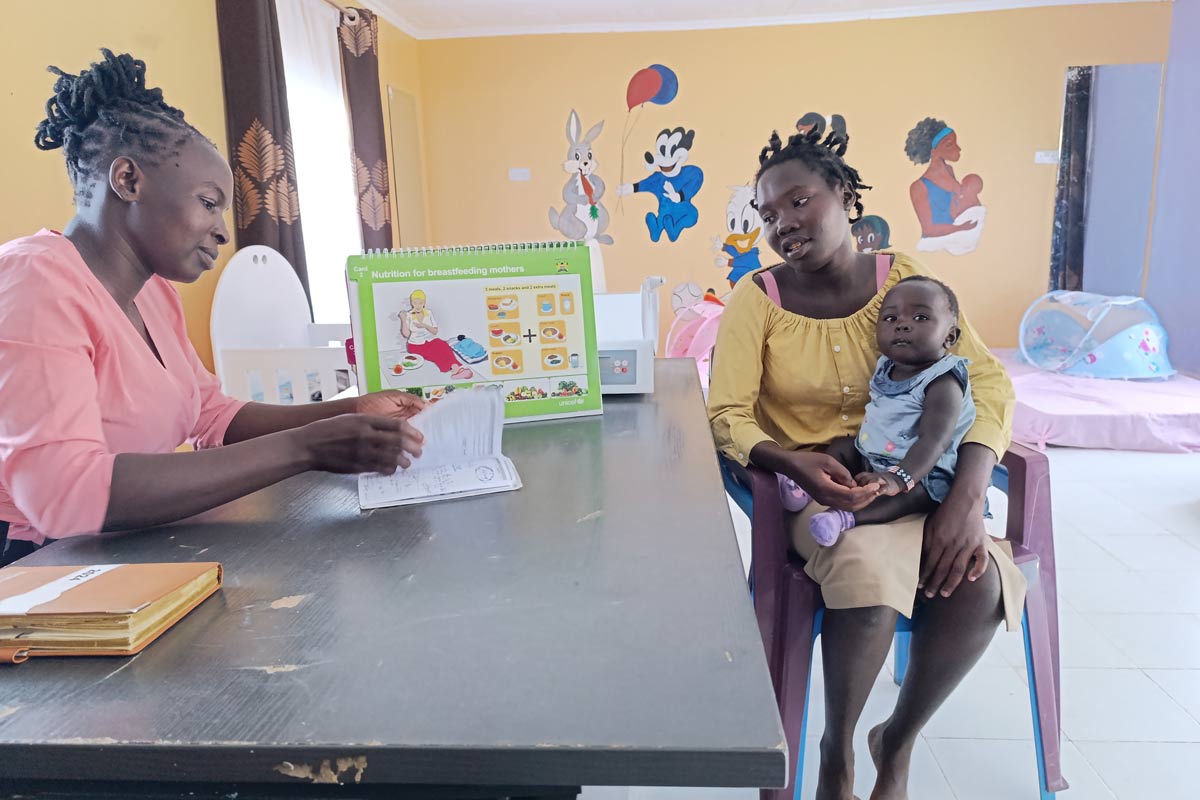
Awino tells VaccinesWork that the ECA programme has been reaching out to women who are “zero to six months pregnant,” as well as to new mothers. These women are monitored by Awino, who makes it her job to ensure that they follow attend all their antenatal care clinics. “Whenever they are displaced, some of our clients end up relocating to higher grounds, but it is our duty to continue with the follow-ups to ensure the babies are delivered in equipped health facilities,” says Awino.
She adds, “The reason we focus on the women from zero to six months is we want to ensure a good health for our children right from the womb. Raising a child does not begin at birth but from conception,” says Awino.
The early monitoring, she says, ensures the expectant women get health support including the iron and folic acid supplements necessary for the unborn child’s growth and development. After birth, the church continues to monitor the newborn monthly, and ensures the children get all the immunisations recommended by the Government of Kenya and the World Health Organization.
Pastoral health care
According to Awino, during the monthly household follow-ups, the team is always keen to check the immunisation books to ensure every child is up to date with the vaccines. The team also looks out for any health concern by probing the mother about both the child’s and her own health. These meetings typically last for two hours.
“We have been hard on our clients, we advise them that in case of any health concern, they can give us a call, but that can only be done once they are in hospital,” says Awino.
Reverend Ouru, who notes the programme is supported by Compassionate International, a non-government organisation, says the aim is to enable young citizens to develop spiritually, physically and emotionally, while monitoring their development.
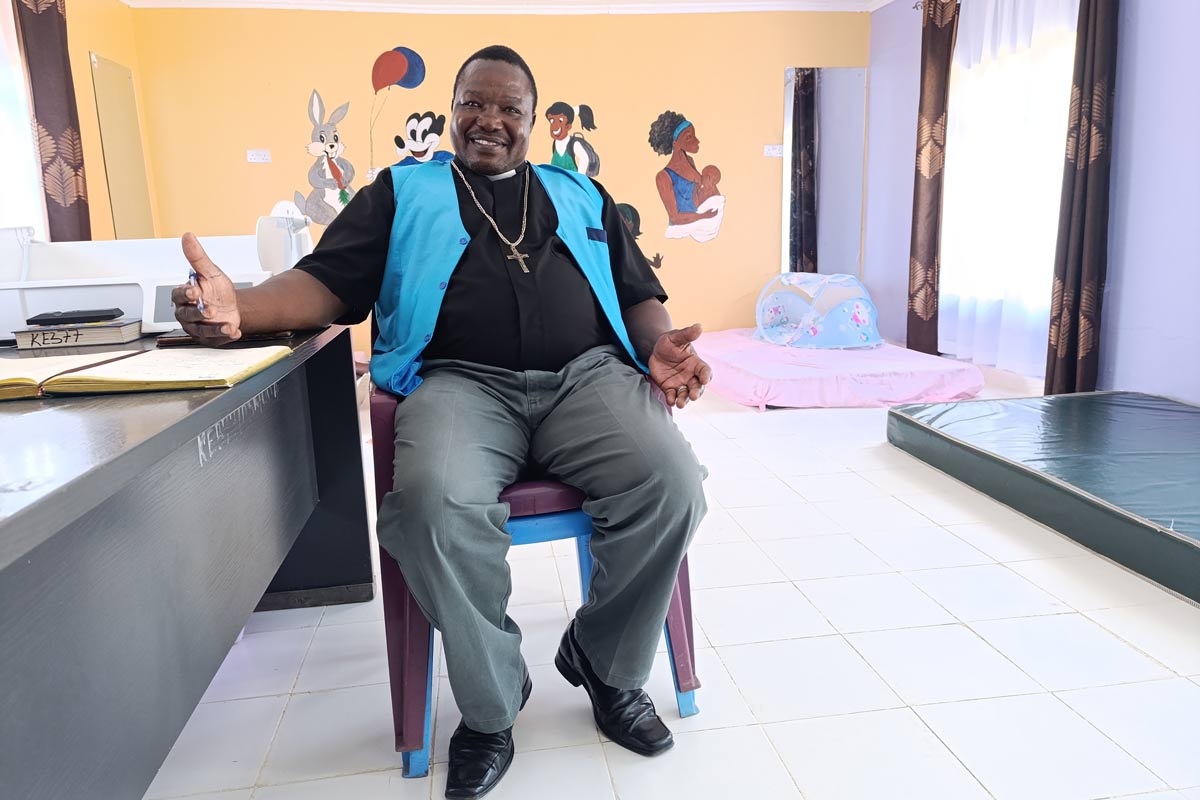
Have you read?
The programme, he says is key in ensuring that every baby survives and thrives, reducing child mortality. He summarises the programme’s health strategy in the acronym GOBI-FFF, a set of WHO-established primary care priorities: growth monitoring, promotion of oral dehydration, exclusive breastfeeding for six months and immunisation, female education, family planning and food supplements.
“We weigh our child beneficiaries whenever they visit us in the church compound, probe their parents in case of any cases of diarrhoea in a move aimed at reducing child mortality, and ensure they are exclusively breastfed for six months.
“Whenever the mothers visit or we meet them at their homes, we go through their clinic cards to ensure that at least every child is taken for all the immunisation to avoid any cases of disease outbreak resulting from vaccine default,” says Reverend Ouru.
The church leader also explains that the women in the programme are economically empowered with skills, while some are helped to set up businesses to support their families.
The children in the programme, he says, will continue to benefit from health, education and talent development skills until they attain 22 years of age. “We have also been organising screenings, and any child who needs immediate mediate medical attention is referred to a health facility,” says the programme’s patron.

